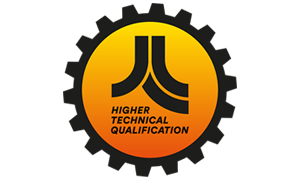The HNC in Computing offers students a broad introduction to the subject area via a mandatory core of learning, while allowing for the acquisition of skills and experience through units such as Programming, Networking, Professional Practice, Database Design and Development, Security and Managing a Successful Project.
For students who have recently been in education, the entry profile is likely to include one of the following:
- A BTEC Level 3 qualification in computing
- A T-Level Digital qualification
- A GCSE advanced level profile that demonstrates strong performance in a relevant subject or adequate performance in more than one GCSE subject. This profile is likely to be supported by GCSE grades at 9-4 (A* to C) or equivalent
- Other related Level 3 qualifications
- An Access to Higher Education diploma awarded by an approved further education institution
- Related work experience
- An international equivalent of the above
We also consider applicants prior learning when considering their acceptance on a Pearson BTEC Higher Nationals, through recognition of prior learning.
| Study level | Cost | Additional fees |
|---|---|---|
| 19+ | please enquire | It is expected that a student will have access to their own computer in order for them to be able to complete work outside of college. |
An HNC in Computing are assessed using a combination of internally assessed centre-devised internal assignments (which are set and marked by centres) and internally assessed Pearson-set assignments (which are set by Pearson and marked by centres). Pearson-set assignments are mandatory and target particular industry-specific skills.
Those working within the computing sector cannot just rely on their technical skills and must ensure all skills are relevant to increase employment opportunities. They will be required to communicate appropriately with stakeholders throughout their career and the ability to use maths and English in a professional context is an essential employability skill that must be developed at all levels of study. Development of essential maths and English skills are embedded throughout these qualifications in accordance with industry requirements and below are some examples of how these skills are developed in the HNC Computing curriculum:
- Written reports
- Formal presentations
- Informal conversations
- Use of professional, sector-specific language
- Using binary data
- Understanding algorithms
- Calculating costs
Some aspects of computing require higher level maths skills than others, but throughout your studies you will be using some level of maths within the curriculum. It is vital that students taking an HNC in Computing are aware that these skills will be required throughout their studies and as part of learning activities and assessments to ensure their skills are in line with current industry standards.
When studying an HNC in Computing as a full-time student, you will be in college 12 hours per week.
You are expected to complete an additional 12 hours of study outside of college in order to successfully complete the qualification.
Full-time HNC students spend 12 hours per week in class delivery, generally over 3 days per week.
The aim of the Pearson HNC in Computing is to develop students as professional, self-reflecting individuals who are able to meet the demands of employers in the computing sector and adapt to a constantly changing world.
You will study in line with 3 industry based pathways of Data Analyst, Network Engineer and Software Developer.
Common modules will be taught as whole group sessions with focused, pathway based specialist modules.
The Pearson Higher National Certificate (HNC) is a Level 4 qualification made up of 120 credits. It is usually studied full-time over one year, or part-time over two years.
The Pearson Higher National Diploma (HND) is a Level 4 and Level 5 qualification made up of 240 credits. It is usually studied full-time over two years, or part-time over four years.
After successfully completing your HNC in Computing, why not top this up to a HND in Computing and then onto a degree top up programme?

This course is a Higher Technical Qualification (HTQ), approved by the Institute for Apprenticeships and Technical Education. HTQs are alternatives to apprenticeships or degrees, providing a practical and employer-led study programme. Our HTQ courses are approved against occupational standards set by employers to give you the skills and experience to start a career in your chosen field.

Find out everything you need to know about Sunderland College and our exciting range of courses!
Register for our next open event
(*Based on 16-18 year olds destination data, 2019/20 academic year)

100% overall A-Level pass rate
Summer 2021

97.4% of our apprentices progressed to employment or further study.
Destination data for Sunderland College 2019/20, Apprentice completers.

Our excellent student support services and expert staff will help you reach your potential.

Recognised regionally and nationally for our high-quality approach to careers education